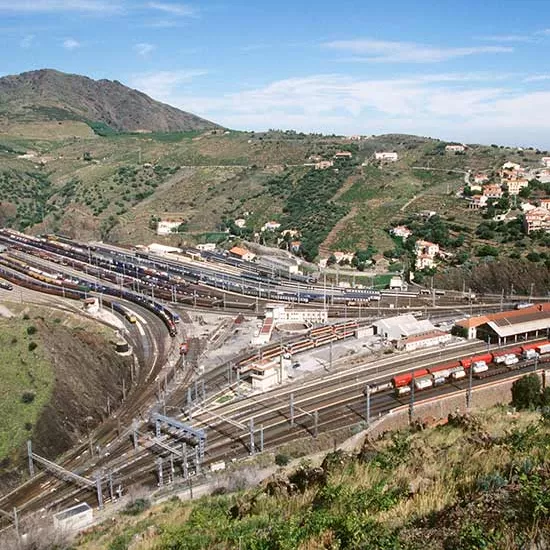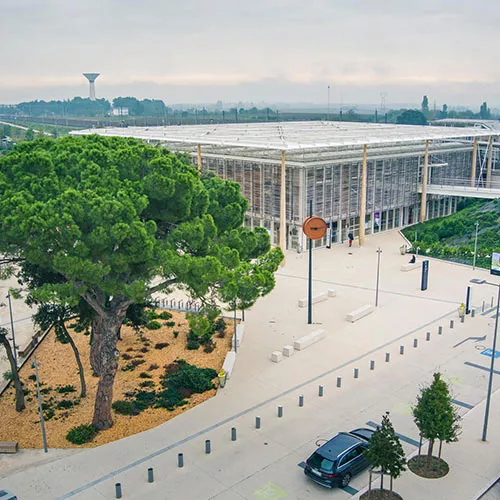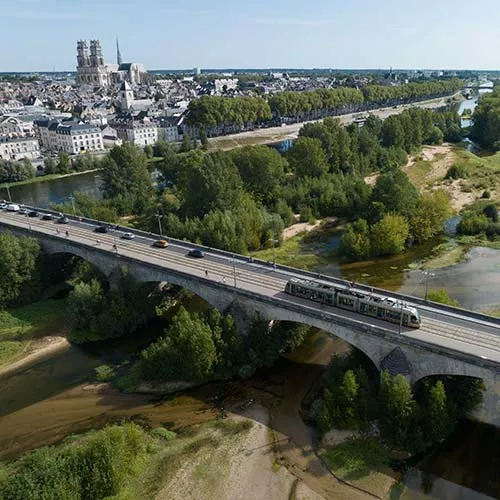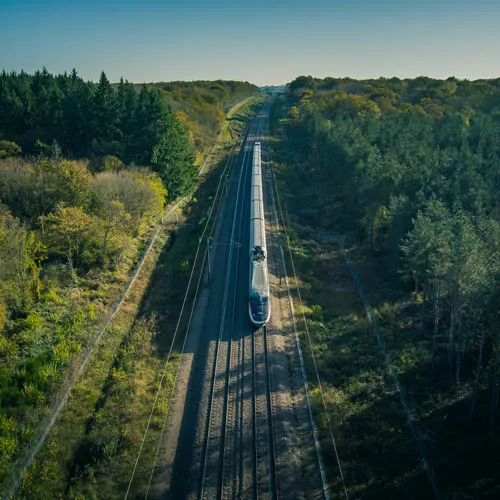Adapting to climate change
Extreme weather—torrential rain, heatwaves and landslides—is already affecting our operations. Which means climate change is no longer a distant threat; it’s a challenge we face here and now. Learn how SNCF is preparing to ensure we remain a resilient, high-performing company leading the green transition.
Planning for a +4°C future by 2100
On 4 May 2023, France’s National Council for Ecological Transition confirmed a projected temperature rise of +4°C by 2100 for mainland France. In response, companies across SNCF Group are actively rolling out solutions to adapt our network and infrastructure to better handle the expected impacts of global warming.

20%
increase in torrential rainfall over the past 20 years

1,000
Keolis sites (including bus depots and rail facilities) have conducted climate and risk audits across 11 countries

12%
of TGV passenger compensation is now linked to climate-related delays

Ensuring the durability of our 28,000 km of track at SNCF Réseau
The French rail network spans 8,800 municipalities, and transports 5 million passengers and 250,000 tonnes of goods every day. As climate conditions become more unpredictable, our teams at SNCF Réseau are focused on building a stronger, more climate-resilient network. "We're designing more robust infrastructure and setting higher technical standards," explain climate adaptation experts Benoît Chevalier, Corinne Roecklin, and Yann Freson.
When it comes to climate change, the cost of inaction is higher than the cost of action.
CEO of French mutual insurance company MAIF and co-chair of the Mouvement Impact France business network, of which SNCF is a member

Adapting stations to help making regions more resilient
Every day, our 3,000 railway stations welcome 10 million passengers and visitors. Flooding, shrinking and swelling of clayey soils, extreme heat, vegetation fires, landslides: we have pinpointed eight major climate hazards for our structures in 2030, 2050 and 2100 timeframes. A roadmap has been drawn up by SNCF Gares & Connexions in order to adapt its stations in the face of these risks. This strategy is consistent with that of SNCF Réseau and it is meant to build climate resilience across the entire rail infrastructure.

Designing resilient public transport at Keolis
As a public transport operator in 13 countries across 4 continents, Keolis supports over 300 transport organizing authorities in tackling climate-related challenges. More than 1,000 Keolis sites—including those in high-risk areas such as the Rhône Valley, France’s southeast coast, Belgium’s Liège province, various U.S. states, Australia, and Dubai—have already undergone climate and risk assessments. "In the short term, we’re boosting our resilience through tailored action plans focused mainly on site-specific organizational strategies," explained Marie-Ange Debon back in 2024, then Chair and CEO of Keolis.

Preventing risks and collaborating internationally at SNCF Voyageurs
From heat-induced rail warping and system malfunctions to fallen trees and floods, climate hazards can disrupt the safety, punctuality, and comfort of our train services. To reduce these risks, teams at SNCF Voyageurs carry out vulnerability studies to assess how climate change is affecting our operations. We’re also part of international railway research initiatives, working with global partners to develop innovative, effective solutions for climate resilience.
Serving regions with resilience and robust performance
“The rail network will need to adapt alongside the regions it serves,” says Benoît Leguet, Executive Director of I4CE, the Institute for Climate Economics, a non-profit think tank that informs public policy on climate change mitigation and adaptation through in-depth analysis. He calls for SNCF Group, institutions, suppliers and users to work together in creating strong regional ecosystems to cope with climate change.
Share the article